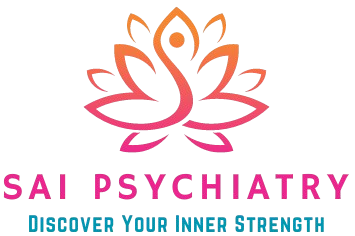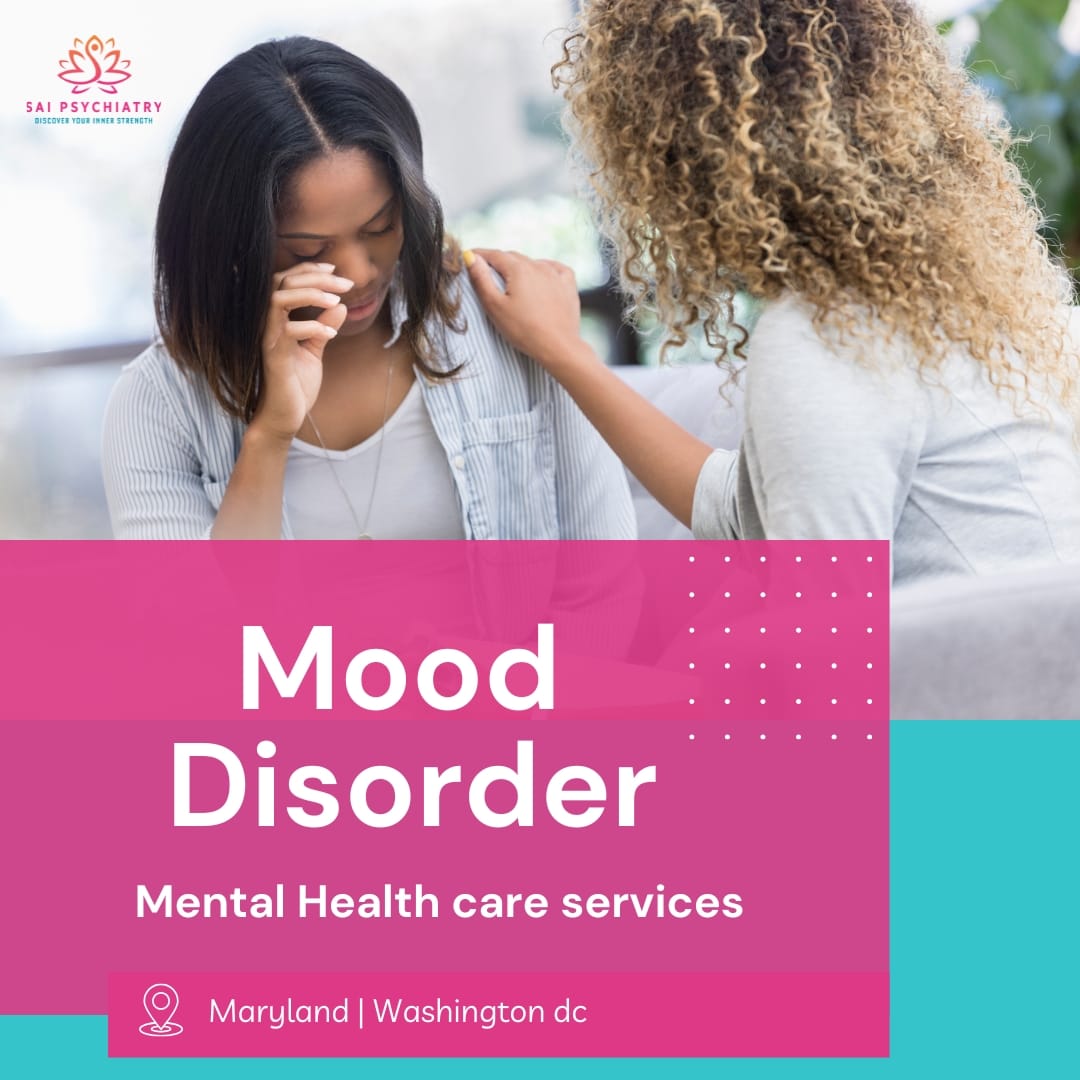Mood disorders encompass a range of psychiatric conditions that lead to significant, often uncontrollable fluctuations in emotional states. These disorders can manifest as profound feelings of sadness, hopelessness, mania, or extreme elation, ultimately interfering with daily life as well as overall well-being.
Major Depression:
Characterized by a persistent period of at least two weeks during which an individual experiences overwhelming feelings of sadness, hopelessness, or a lack of interest in usual activities.
Dysthymia:
A chronic, low-grade form of depression or irritability that lasts for two years or longer, impacting day-to-day functioning as well as quality of life.
Bipolar Disorder:
This condition features alternating episodes of depression as well as mania, where individuals may experience periods of elevated mood and energy.
Mood disorders can arise from various factors, including:
- Genetics: A family history of mood disorders can increase the likelihood of experiencing similar conditions.
- Medical Conditions: Certain medical issues such as brain tumors, infections, as well as chronic illnesses can trigger mood disturbances.
- Hormonal Changes: Elevated levels of hormones, including thyroid-stimulating hormone (TSH), can be associated with depressive symptoms.
- Life Events: Stressful life transitions, the loss of a loved one, as well as traumatic experiences can all contribute to the development of mood disorders.
- Medications: Some medications may have side effects that induce mood-related symptoms.
The good news is that mood disorders are treatable. At SAi Psychiatry, we offer a variety of effective treatment options, including:
Talk Therapy (Psychotherapy):
Engaging with a mental health professional to discuss your experiences as well as emotions can provide valuable insights and coping strategies.
Medications
Certain medications can be prescribed to alleviate symptoms of depression as well as manage bipolar disorder.
Cognitive Behavioral Therapy (CBT):
This evidence-based therapy is designed to help individuals manage as well as prevent the recurrence of mood disorder symptoms.
Brain Stimulation Therapies:
For those who do not respond to other treatments, options such as Transcranial Magnetic Stimulation (TMS) as well as Electroconvulsive Therapy (ECT) may be considered.
At Sai Psychiatry, we are dedicated to providing personalized care and support to help you navigate your journey toward emotional wellness.For more information, visit our website: Sai Psychiatry. Feel free to ask for any further adjustments or refinements!





 Copyright © 2024 Sai Psychiatry. All Rights Reserved.
Copyright © 2024 Sai Psychiatry. All Rights Reserved.